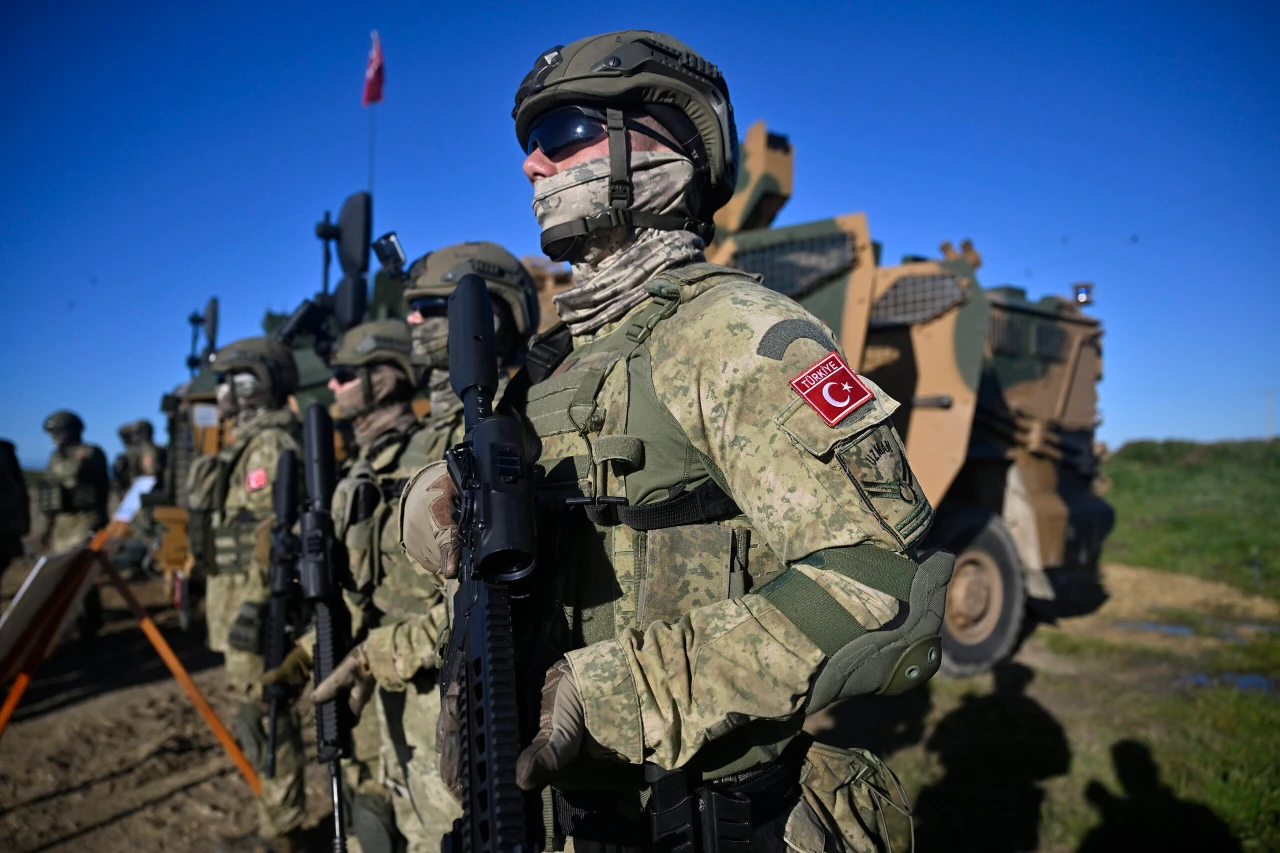US calls for investigations into Georgia’s election violations
 Supporters and members of the ruling Georgian Dream party attend a gathering at the party's headquarters after exit polls were announced during parliamentary elections in Tbilisi on October 26, 2024. (AFP Photo)
Supporters and members of the ruling Georgian Dream party attend a gathering at the party's headquarters after exit polls were announced during parliamentary elections in Tbilisi on October 26, 2024. (AFP Photo)
U.S. Secretary of State Antony Blinken expressed support on Sunday for investigations into alleged “election-related violations” following legislative elections in Georgia, which were won by the ruling Georgian Dream party, known for its ties to Russia.
Georgian President Salome Zurabishvili condemned the recent legislative elections as a “total falsification,” calling for a protest to contest the results that favored the ruling Georgian Dream party. In a televised address, she asserted, “I don’t recognize these elections,” and accused Russia of orchestrating the alleged electoral fraud, framing it as a “Russian special operation” that constitutes a modern form of hybrid warfare against Georgia.
In a statement, Blinken referenced reports from both international and local observers, highlighting concerns regarding the pre-election environment characterized by “vote buying and voter intimidation” tactics employed by the ruling party.
“We condemn all contraventions of international norms and join calls from international and local observers for a full investigation of all reports of election-related violations,” Blinken stated, underscoring the United States’ commitment to upholding democratic principles.
The elections have raised alarms among Western nations, with calls for accountability growing louder amid accusations of irregularities. Observers have noted that such practices undermine the integrity of the electoral process in Georgia, a country situated at a strategic crossroads between Europe and Asia.
Historically, the U.S. has actively supported democratic reforms in Georgia, particularly following the Rose Revolution in 2003, which led to the ousting of pro-Russian President Eduard Shevardnadze. The U.S. has backed the subsequent leadership in their efforts to strengthen ties with the West, notably through participation in NATO’s Partnership for Peace program and a Strategic Partnership Agreement signed in 2009.
The European Union (EU) has also played a significant role in supporting Georgia’s democratic development. Through its European Neighborhood Policy (ENP), launched in 2004, the EU sought to deepen relations with Georgia, promoting political and economic cooperation focused on democratic reforms and stability. In 2014, Georgia signed an Association Agreement with the EU, which included a Deep and Comprehensive Free Trade Area (DCFTA), facilitating trade and aligning Georgia with EU standards.
In 2017, the EU granted visa-free travel to Georgian citizens, allowing them to enter the Schengen Area without a visa, further solidifying ties. The EU has provided substantial financial and technical assistance to enhance democratic governance, rule of law, and human rights in Georgia, along with deploying monitoring missions during elections to ensure transparency.
The EU’s commitment to Georgia’s sovereignty has been evident, particularly following the 2008 war with Russia, where it has implemented sanctions against Russia and established the EU Monitoring Mission (EUMM) to promote stability in the region.



